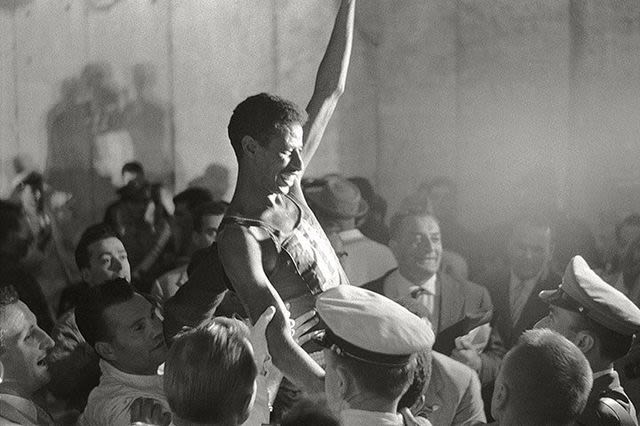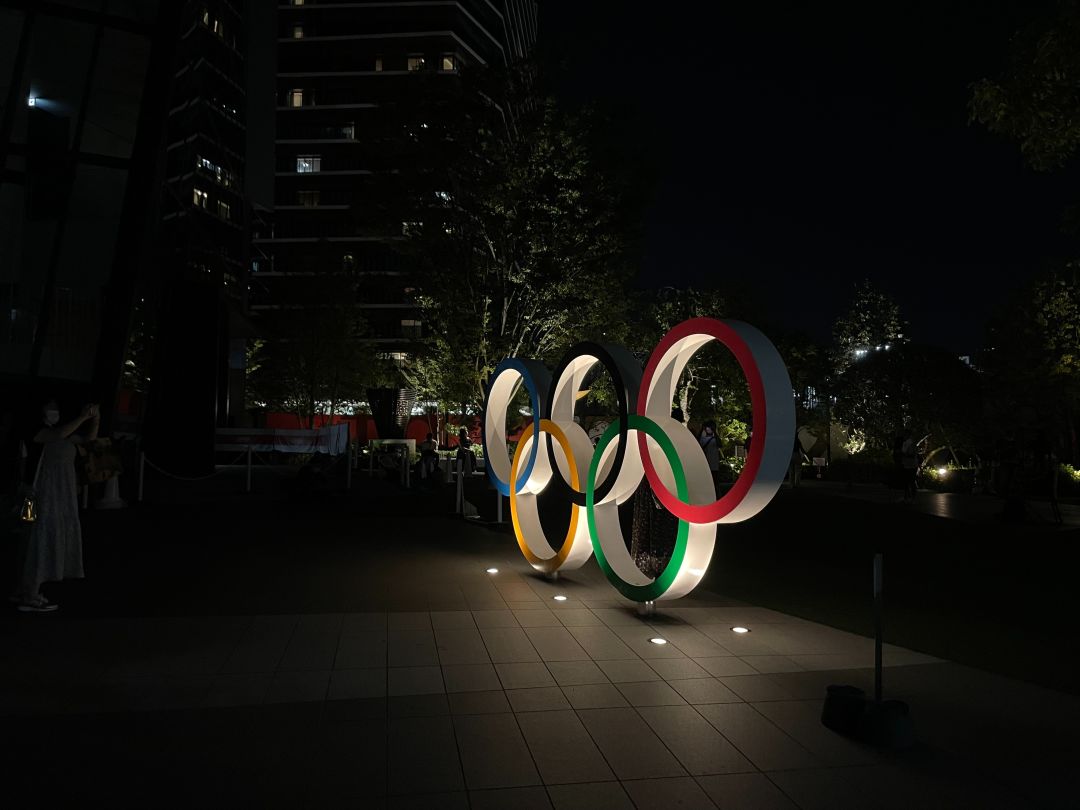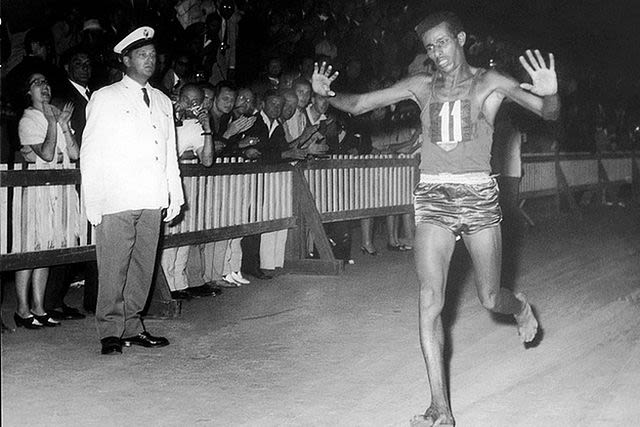By using our site, you agree to our cookie policy.
Everything is impossible until it's not: September edition
A historic gold medal and a barefoot run, we have it all in this month's edition — celebrating Abebe Bikila.

Everything is impossible — until it isn’t. At Strike, we’re looking back on disruptive moments that changed the world. From technology that has shaped our lives to feats of human strength and resilience that were never thought possible, every month we’ll bring you a moment in history that changed everything.
Disruptive moments come in many different forms. Whether it’s tech that has transformed lives, a flash of ingenuity that changes the way we see the world, or a moment of awe-inspiring human heroism and resilience. This month, we’re taking a hop, skip and a jump back in time to one summer at the 1960 Olympics in Rome, and to an incredible moment that made Olympic – and world – history.
On September 10th, 1960, Ethiopia’s previously unknown marathon runner, Abebe Bikila, stepped out onto the marathon course. He preceded not only to break a world record for the fastest marathon, but also to be the first black African athlete to win an Olympic gold medal. And he did all of this completely barefooted.
Determination and heroism
Rome has historically been the site for many feats of Olympic prowess, and so in the summer of 1960 it seemed strangely appropriate that such scenes of warrior-like resilience would play out before audiences’ eyes in Italy’s famous capital city.
When Bikila arrived in Rome, his running shoes had been ruined by his extensive training sessions in the months leading up to the games. But his replacement shoes caused blisters and so, when marathon day came around, Bikila made the bold decision to dispense with running shoes altogether – running the marathon through Rome’s cobbled streets completely barefooted.

The dramatic race began in the evening and went on into darkness – in order to combat Rome’s sweltering summer heat. In the marathon’s closing moments, Bikila was tied with one of the hotly-tipped favourites to win – the Moroccan runner, Rhadi Ben Abdesselam – only pulling into the lead in the race’s final 500m. When Bikila crossed the finishing line he was 25 seconds in the lead, finishing the marathon with an impressive, and record-smashing, final time of 2 hours, 15 minutes and 16.2 seconds.
When asked about his decision to run the marathon barefooted, Bikila stated: ‘I wanted the world to know that my country, Ethiopia, has always won with determination and heroism.’ And the world responded, with Bikila’s heroic effort becoming the stuff of legend.
Bikila was not the favourite to win in the 1960 Olympics, in fact, he very nearly didn’t make it there at all."
An extraordinary career
The son of a shepherd, Bikila originally worked as a bodyguard to the Ethiopian royal family when his athletic potential was scouted during his training sessions.
But, despite his early promise, Bikila was not the favourite to win in the 1960 Olympics, in fact, he very nearly didn’t make it there at all. In another twist that makes Bikila’s story all the more extraordinary, he was only called up to join the Ethiopian team at the very last-minute – after his team-mate, Wami Biratu, was injured in a football match. The course of history was nearly very different.
After his amazing world-record smashing stint, Bikila returned to the Olympics four years later — this time winning a second gold. While he did have his shoes on for this race, in another inspiring display of courage and determination, he had just recovered from a bad bout of appendicitis.

Bikila’s incredible story has been an inspiration for many, paving the way for generations of athletes to come. It also shows us that while technology has changed our lives, sometimes sheer human strength and willpower can be as disruptive and important as any pair of extra-springy Nike Pegasus. His incredible achievements will go down in history.
We're always looking to dream bigger and find ways to make the impossible possible. Next month, we'll be back with another moment that changed everything.
Strike feel free
Copyright © Strike Limited 2024

